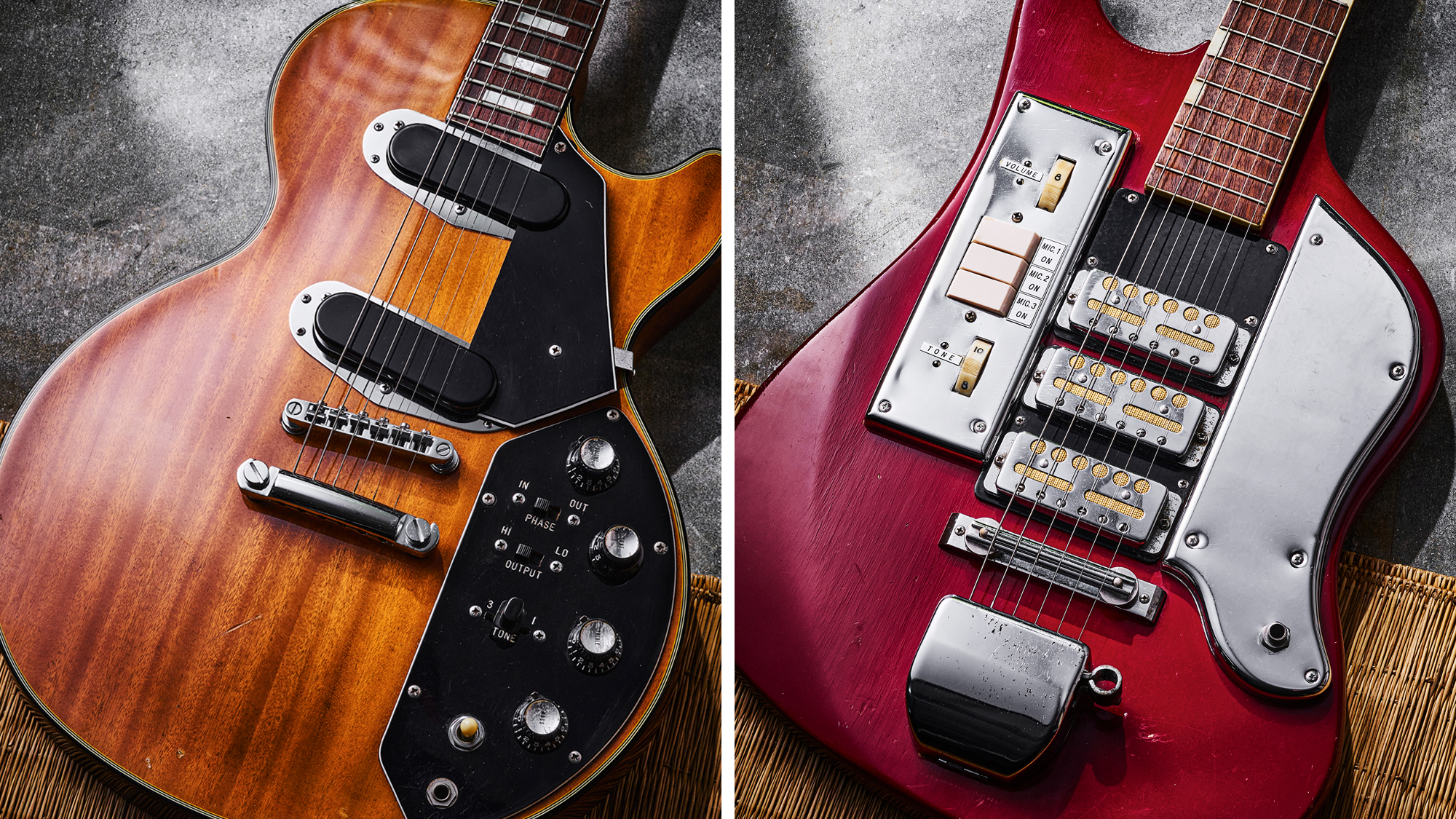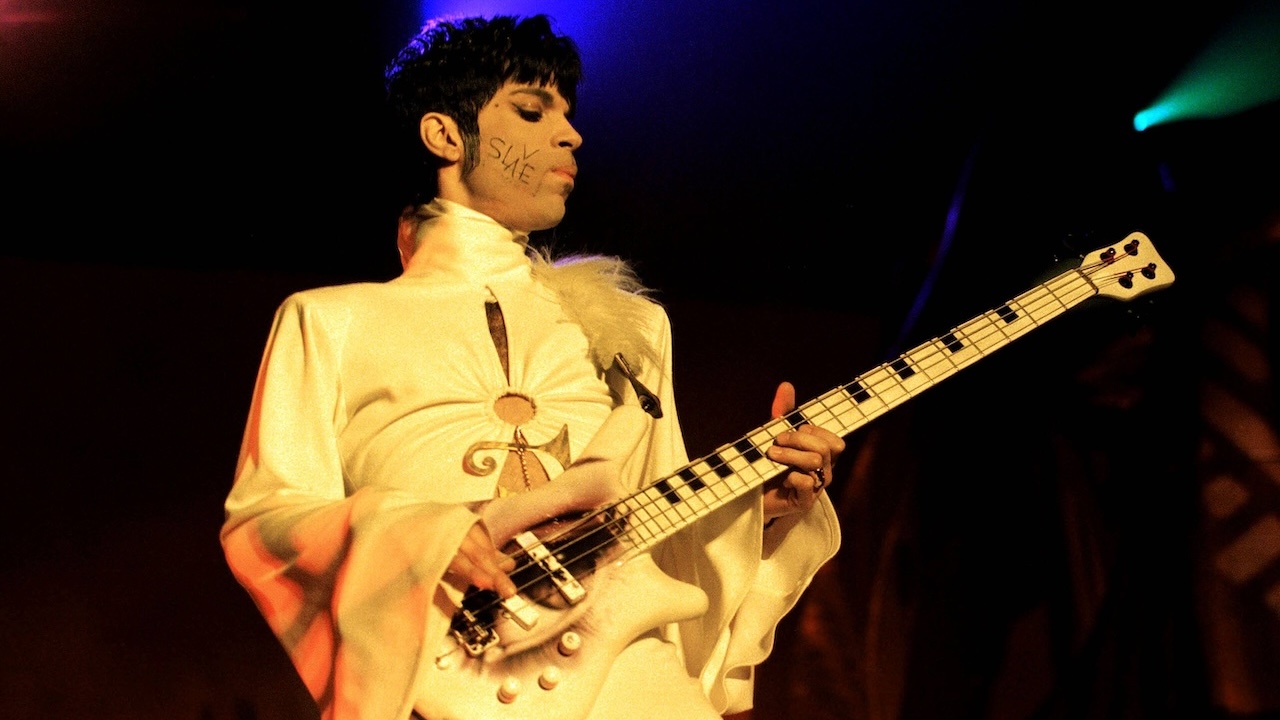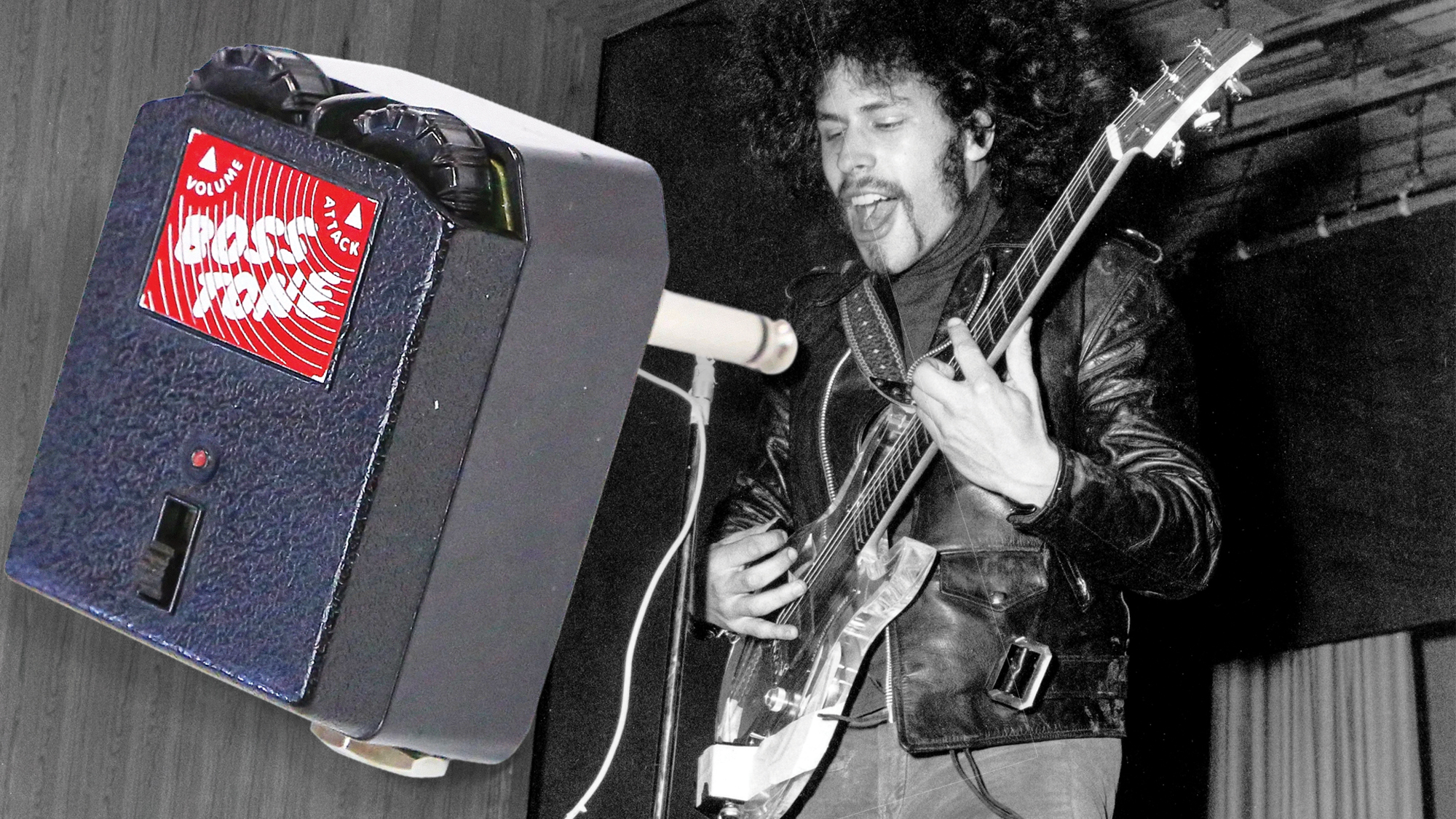“I grew up playing bluegrass… it’s taken me years to lighten up my right hand to where I’m not breaking strings every 30 seconds!” Larkin Poe have worked on music together since they were toddlers – and their guitar sisterhood has never been stronger
Bloom is a family affair that takes Megan and Rebecca Lovell’s spark from stage to the studio, with guitars plugged straight into a cranked amp and served up “neat”
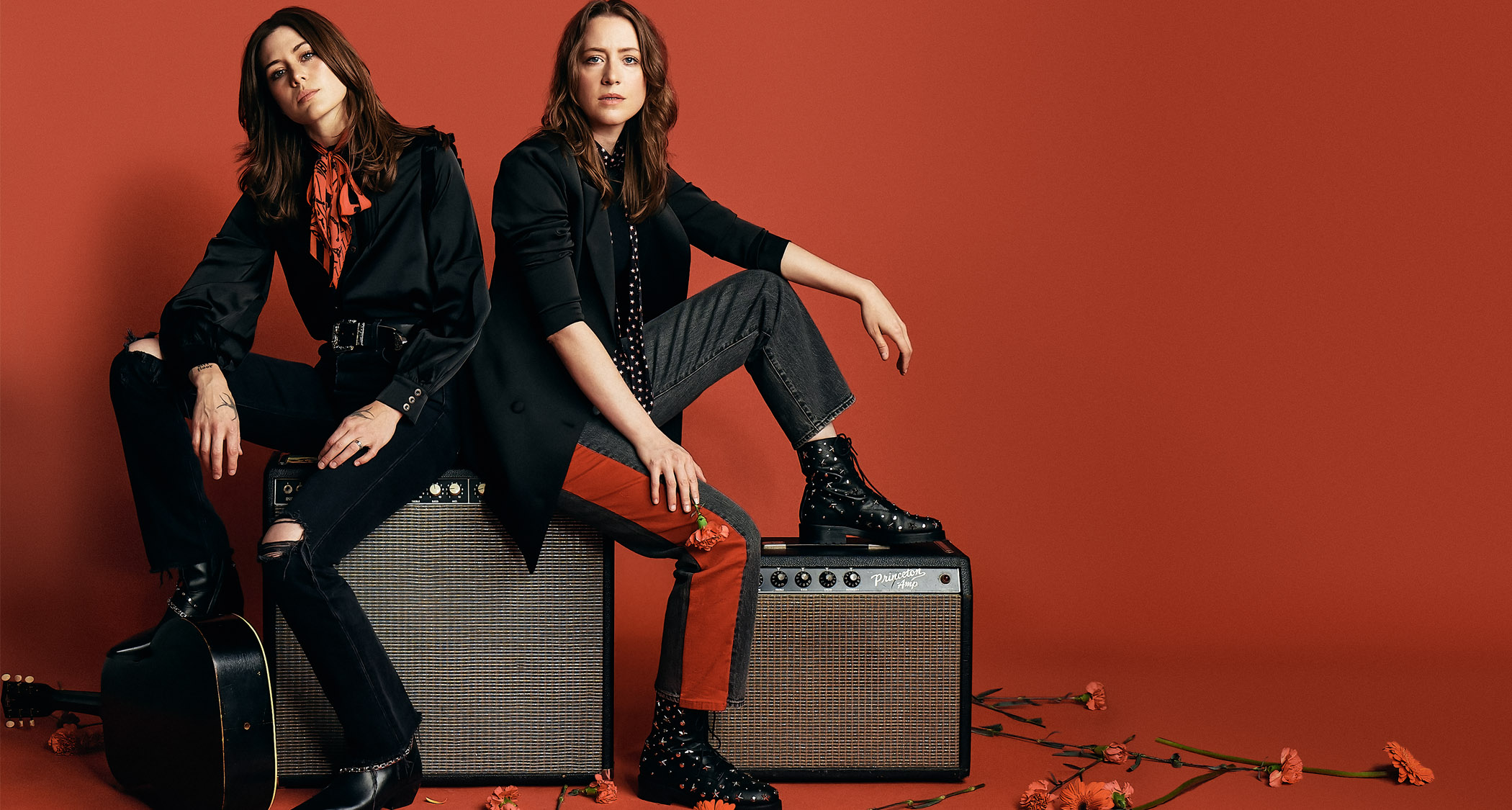
There are few bands that combine roots rock, classic rock, Americana and bluegrass with the blissful ease of Larkin Poe. As far as the guitars go, sisters Rebecca and Megan Lovell were born to do it. They’re dyed-in-the-wool lovers of all things timeless, which shows in their music – especially their latest record, Bloom.
When reflecting on their approach to the guitars on Bloom, Rebecca keeps it short, telling Guitarist: “It’s just guitar served up neat.” But, of course, there’s more beneath the surface. Megan adds: “When flowers bloom, they don’t stay around forever; they die, wilt, fall off the vine and then another one grows. That’s how we view our process.
“We’re always looking toward the next mountain we’re going to climb,” she adds, “and we find a lot of joy in that. We do that instead of being like, ‘Oh, well, look, I have to climb up this hill.’ Instead, it’s, ‘I get to climb this hill and see what’s around the bend.’”
Fierce guitars and an array of vintage amps aside, Bloom is about growth, empowerment and knowing oneself after a long, arduous journey – which isn’t remotely over. In other words, art is never easy.
But Rebecca wouldn’t have it any other way: “It’s the artist’s responsibility to dig deep and find what’s meaningful to them,” she says. “But you’ve got to do it without the fear of judgment that we’ll inevitably receive. So it’s the artist’s responsibility to put that out into the world and find resonance with other people who feel similarly…”
What inspired your latest record, Bloom?
Rebecca Lovell: “Bloom represents a cool moment for Larkin Poe. It’s the culmination of the efforts we’ve had underway for years. The preeminent focus is the songwriting process, and this album is one of the first projects that Megan and I have truly collaborated on from the ground up.
Get The Pick Newsletter
All the latest guitar news, interviews, lessons, reviews, deals and more, direct to your inbox!
“As a result, you can hear a new moment of evolution in time for us as songwriters and players. We’re super proud of this newest chapter. It’s great to get into your 30s and let it all hang out.”
Megan Lovell: “We had a lot of success with Blood Harmony [2022], learned a lot from that process, and made a lot of strides. We came into Bloom with a good idea of what we wanted to create.
“We were writing for the live stage and thinking about touring while writing, and what might feel good to sing with people on the road. We’re a touring band, that’s our big focus, and we bring that spark to the studio with us.”
What gear did you bring to the table while searching for tones? Do you intentionally choose things that will contrast one another, rather than mirror?
Megan: “We’re classic-rock lovers; that’s the focus in tones. We like warm vintage-sounding tones, [and there’s] a lot of classic tones going into the process.
“For this record, I was listening to a lot of records, trying to find inspiration for new tones for myself. I was listening to David Lindley. I play lap steel and he’s one of the preeminent lap steel players of all time. Specifically, I listened to his tone on Jackson Browne’s Running On Empty.
“And Tyler Bryant co-produced this record with us and was instrumental in helping us find tones as we were recording. We’d be talking about tone, and he was like, ‘Well, let’s just look up David Lindley’s rig and try to put you through something similar.’
“We had a Dumble clone with such a cool tone – it was something I’d been searching for. We plugged straight into that and were like, ‘This is it.’ With every song, we tried to beat that tone with something different and we never could.”
Rebecca: “For our recording process, since there are two of us as guitarists, we’re not interested in having a whole tonne of overdubs. Not once on the record did we double the guitar or try to fatten up the choruses.
“It’s a pretty rock ’n’ roll outfit, so for my guitar sounds I’m typically plugging into – somewhat unexpectedly, to get a bigger tone – some really small amps to be a bit of a foil to Megan’s big, fat, sort of wide lap-steel tone.
“She always comes straight down the middle, and I was playing through a [Fender] Champ and a Princeton. There’s a cool manufacturer called Square Amps, who retrofits old radios and puts tube circuitry into the cool little vintage housings. I played a lot of guitar through that, but we didn’t use a lot of effects. Maybe some here and there, like a Space Echo or a rack-mounted stereo, to create some cool, slappy tones.”
Being siblings in a creative space must create a dynamic atmosphere. What’s that like?
Megan: “We’ve known each other since the womb, so we’ve always been a package deal. Even as toddlers; we’ve always had projects together all through childhood. It’s very natural that we ended up running alongside each other in life. There have been some tense moments throughout our relationship, but we have a really good working relationship.
We put a lot of time, effort and communication into our relationship because that’s what it takes. Anyone with siblings can appreciate that
Megan Lovell
“We put a lot of time, effort and communication into our relationship because that’s what it takes. Anyone with siblings can appreciate that. It can be a fraught relationship if you don’t treat it with kid gloves. But we also have Tyler Bryant, Rebecca’s husband, so it’s just the three of us, and that’s an interesting addition to the relationship, too – but in a wonderful way.
“It makes for a safe, cosy recording process. We really know each other and love each other. We also have similar views on music and what we want our music to do. We are very much on the same page musically, which helps the process a lot. It’s really quite special.”

Rebecca: “Clearly, Megan and I, having grown up in the same household, have memory recall to the same classic records that shaped our lives from being toddlers strapped in car seats in the family minivan, listening to Crosby, Stills, Nash & Young, to our parents spinning The Carpenters, The Beatles, Elvis Costello, Fleetwood Mac and Black Sabbath, and then edging into classic rock and bluegrass.
We grew up in a household that celebrated all genres
Rebecca Lovell
“We grew up in a household that celebrated all genres. Sharing that experience with one another in terms of the genres that inform how we write and arrange our songs and riffs, and having Tyler Bryant co-produce, feels so special. [With Tyler] it feels like we have found such a kindred spirit in terms of musical interest. That really was one of the big reasons that he and I fell in love.
“We became buddies after realising that we loved the same kind of music. Our relationship with art, music, live shows, songwriting and guitar and gear acquisition syndrome is like walking on parallel paths. Leaning into that synergy as a family and digging deep to try to create the best songs and recordings is just second nature.”
One of Bloom’s standout tracks is If God Is a Woman, which feels more poignant than ever, given the current state of the world.
Rebecca: “Having grown up in the guitar music space, we remember a time when it was very rare to be on the festival circuit and see other women booked. We definitely have been the recipients of the experience of women with guitars being treated as a novelty. You can’t help but respond to that experience – but not with a bad attitude but an attitude of empowerment to be the change we wish to see in the industry.
“When your run-of-the-mill, random guitar dude tries to instruct you on how to tune your guitar, you kindly let them know that you’re aware of how a guitar should be tuned. You do your best to just rip on a solo and let them know that women are also here to play, that women can also do rock ’n’ roll, and that we need a little bit of space with which to do it.”
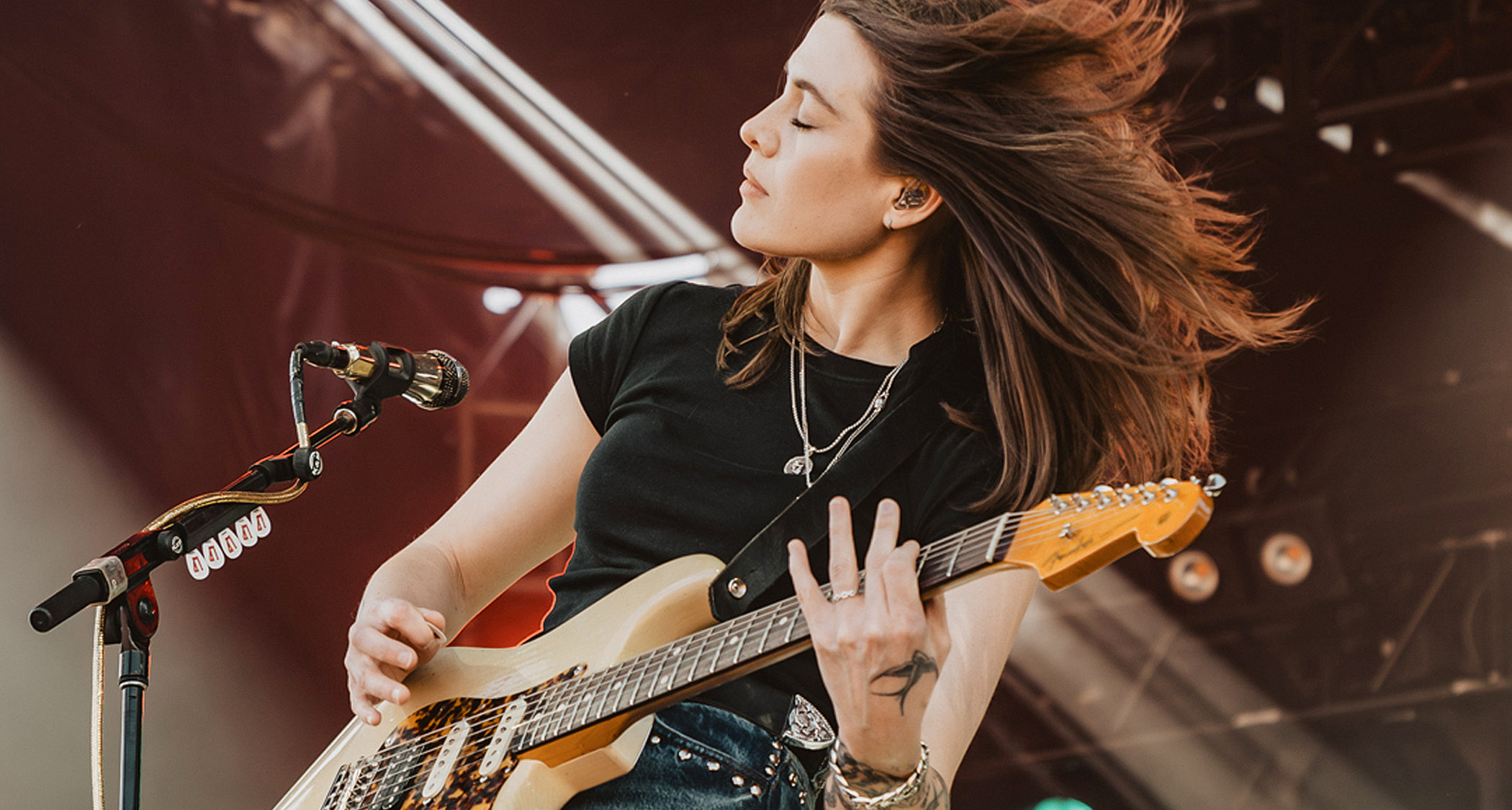
“It’s cool to feel like a droplet in a wave crashing down on rock ’n’ roll music. So many of my favourite bands are female-fronted. To be able to celebrate that journey and be a part of the change and to be able to say, ‘Hey, girls can do anything that guys can do,’ is amazing.
“By that token, perhaps the white male Jesus is actually a black woman. Perhaps that is the kind of future we need to envision for ourselves and to allow space for women to continue to expand and bring and share their creativity at the table.”
Given the climate we find ourselves in today, are those issues getting better, stagnating or something else?
Megan: “We have to give some credit. Around five to 10 years ago, there was an outcry to festival promoters, complaining that the percentages of women on the bills were so small. There was a big response from a lot of promoters trying to rectify that, and we’ve seen a resurgence of women on festival bills.
“That’s really important because festivals are where a lot of bands find a foothold and are where people discover music. We are now travelling a lot and seeing a lot of women on bills along with us. Whereas before, there might have been only one or two female-fronted acts. Now, I think we’re creeping up there… I think women are finding a lot more support in music.”
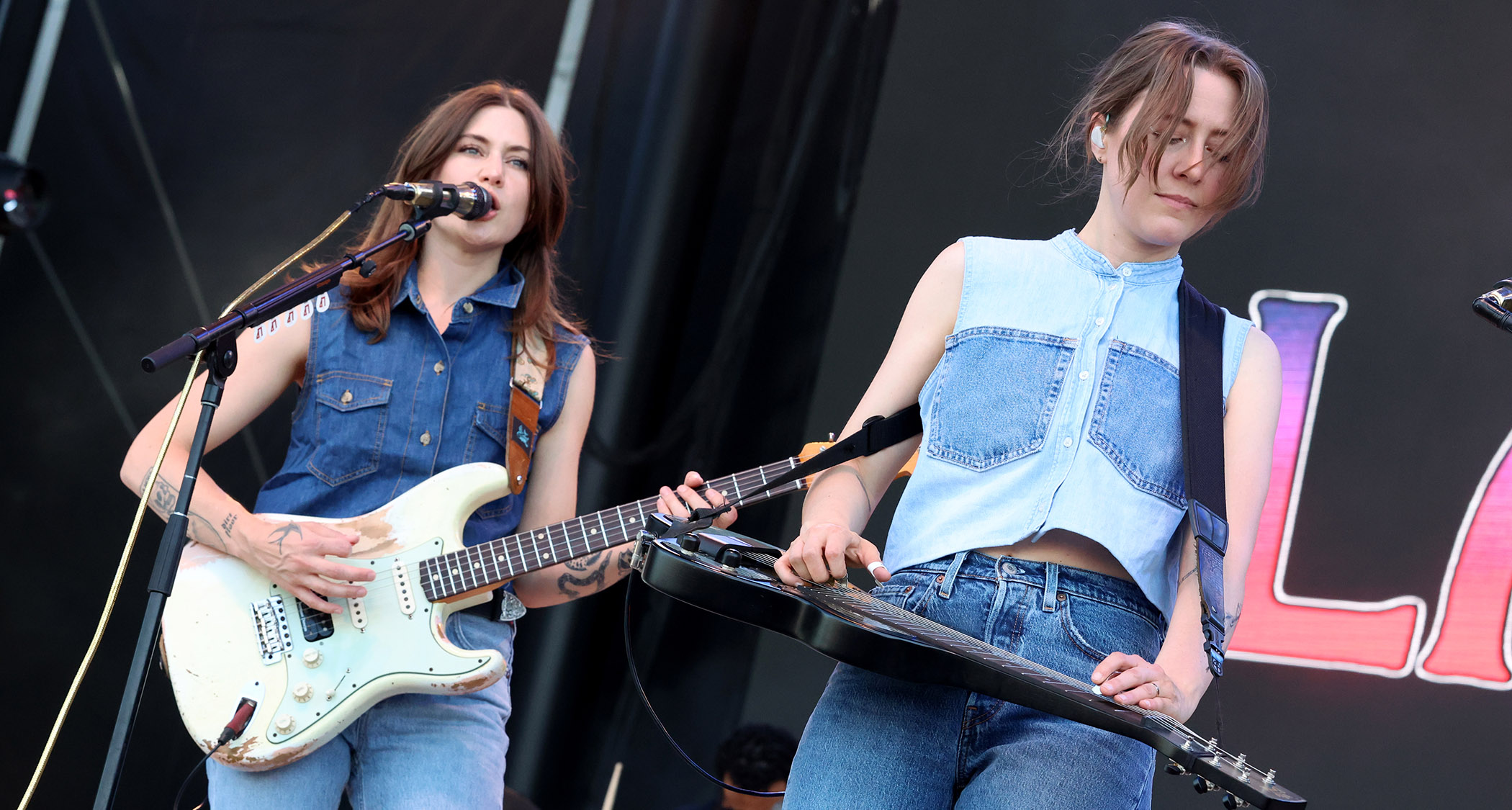
Rebecca: “I also would speak to the idea that it takes two to tango. Actually, it takes everyone to tango. That’s not being sexist in either direction; we’ve had incredible male mentorship. Some of our biggest heroes who have put their faith in our abilities and go on tour with them are men like Bob Seger.
“To be in your 20s and have an artist say, ‘You know what? I want you to come and expose your music to my fandom. Come on tour with me…’ To be on stage with Keith Urban, Elvis Costello and all these guys who are really pulling their weight in the belief of equal representation for women in the music space is cool to see. It’s cool to see the temperature shifting in the music industry.
“There’s a lot more space and a lot less judging books by covers. We’re allowing artists to speak and write songs the way they want to write. Having a space of acceptance feels really fabulous. We’re continuing to climb the mountain together, and it feels great.”
Themes of growth, finding yourself and knowing yourself are prevalent throughout Bloom. How have those themes extended to your guitar playing and what conclusions can you draw about yourselves as artists?
Megan: “There were lots of conversations between Rebecca and I because it can be tense to be an artist – especially with these platforms where you can very easily compare yourself to other artists in a way that maybe we shouldn’t. Art isn’t something you can quantify with numbers, but here we are. We can look at someone else’s Spotify plays and map it out for ourselves.
“That can be hard because you can get in your own head pretty easily and tear yourself down block by block until there isn’t anything left. We’ve been aware of this and speaking to each other about it, trying to work our way through that tangled mess. There’s strength in self‑acceptance, knowing what you bring to the table, and finding your power within that. It’s an ever‑evolving process.”
Has that process freed you from any expectations thrust upon you? And to that end, what are your expectations as you move forward?
Rebecca: “It’s very tempting to believe there is a right and wrong way to do things. Realistically, it’s all on a spectrum. It boils down to the individual expression. With Bloom, just as Megan said, it’s about finding power and letting it hang out. This record feels like we’re not trying to be anything other than what we are.
Whenever I’m playing electric, you know, it’s taken me years to lighten up my right hand to where I’m not breaking strings every 30 seconds
Rebecca Lovell
“For me, especially as a guitarist, it’s taken me many years to embrace my identity. I grew up playing a lot of bluegrass guitar; that was my introduction. That’s hard to shake, and whenever I’m playing electric, you know, it’s taken me years to lighten up my right hand to where I’m not breaking strings every 30 seconds.
“At times, I’ve felt the temptation to be judgmental of how I play and describe myself as ‘not a true electric guitarist’ because I came from a unique perspective. But in reality, that’s the bag I carry. That’s the hand I was dealt. If I accept those angles of myself, I can share that unique, quirky, left-of-centre side of guitarmanship with the world. That’s what I’m able to give people.”
At the top of the conversation, Megan mentioned that Larkin Poe is a live band at its core. How does playing live add to your growth as guitarists?
I’m looking forward to spending a lot of time over the next few months working on not thinking too much while on stage
Megan Lovell
Megan: “We’ll be doing a lot of touring in ’25. I’m very much looking forward to it, especially considering we have a couple of months to go into rehearsals and work these songs up. I think anybody who tours a lot and consistently, and rarely takes long breaks from touring, can attest to finding yourself in ruts, where you’re like, ‘Whoa, it’s another show…’
“It can feel like déjà vu. It’s your responsibility as an artist to break yourself down and get yourself out of that rut. I’m looking forward to spending a lot of time over the next few months working on not thinking too much while on stage.
“I do find myself not enjoying when I’m playing; I have to get into this meditative space where I’m not in my own way, which is easy to do if you get stuck. I’m looking forward to getting into that space next year.”
- Bloom is out now via Tricki-Woo.
Andrew Daly is an iced-coffee-addicted, oddball Telecaster-playing, alfredo pasta-loving journalist from Long Island, NY, who, in addition to being a contributing writer for Guitar World, scribes for Bass Player, Guitar Player, Guitarist, and MusicRadar. Andrew has interviewed favorites like Ace Frehley, Johnny Marr, Vito Bratta, Bruce Kulick, Joe Perry, Brad Whitford, Tom Morello, Rich Robinson, and Paul Stanley, while his all-time favorite (rhythm player), Keith Richards, continues to elude him.
You must confirm your public display name before commenting
Please logout and then login again, you will then be prompted to enter your display name.
“The main acoustic is a $100 Fender – the strings were super-old and dusty. We hate new strings!” Meet Great Grandpa, the unpredictable indie rockers making epic anthems with cheap acoustics – and recording guitars like a Queens of the Stone Age drummer
“You can almost hear the music in your head when looking at these photos”: How legendary photographer Jim Marshall captured the essence of the Grateful Dead and documented the rise of the ultimate jam band
















